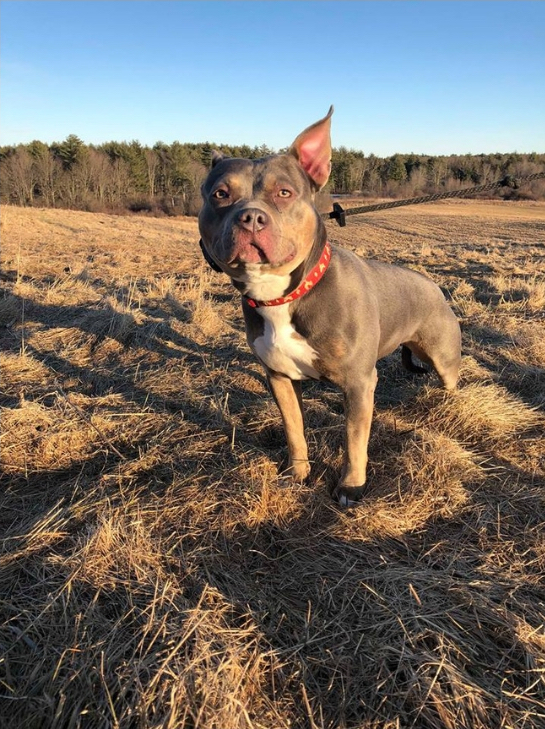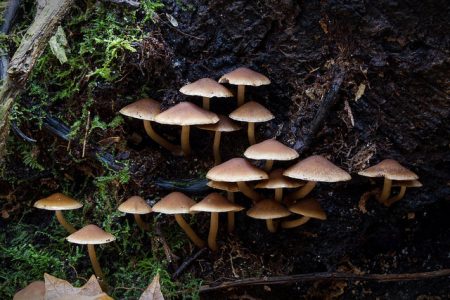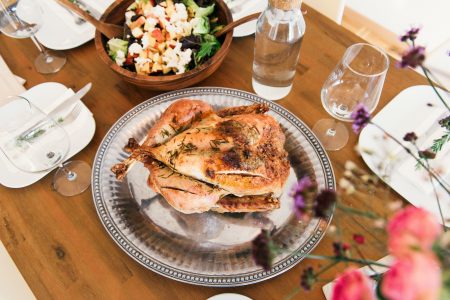 With the change of each season, comes a variety of new health concerns. For us, that means the maddening symptoms of seasonal allergies and the fast approach of the dreaded flu season. But what does the season change bring for our pets? Here are some tips to keep your furry companions happy and healthy throughout the fall season.
With the change of each season, comes a variety of new health concerns. For us, that means the maddening symptoms of seasonal allergies and the fast approach of the dreaded flu season. But what does the season change bring for our pets? Here are some tips to keep your furry companions happy and healthy throughout the fall season.
Beware of cold-weather household products
Autumn brings a laundry list of yardwork and household chores in preparation for the upcoming freezing temperatures of winter. For many of us this means the use of two kinds of hazardous products: rodenticides and antifreeze.
As the temperatures plummet, critters like rats, mice, and squirrels seek shelter in the warmer corners of our homes, barns, and attics. When dealing with a rodent takeover, be mindful of the products you choose to keep out these unwanted guests. Rodenticides can be deadly if eaten by your pet, and the bodies of dead and/or poisoned rodents can be very hazardous, as well. If you must use something to rid your home of rodents, talk to your vet about alternative methods to ensure the safety of your animals.
Anti-freeze is a necessary addition to our vehicles, especially as the weather gets colder. However, it is an extremely toxic, and unfortunately attractive, substance for our pets. Antifreeze drips and spills are often in highly accessible areas for animals, such as on garage floors and driveways. Additionally, the toxic substance has a sweet taste that entices pets to ingest it. Be vigilant when using antifreeze, thoroughly cleaning spills and watching your pet closely when they’re in areas where it has been used. It only takes a small amount of antifreeze to become deadly, and the devastating effects set in quickly.
Even if you don’t use toxic substances in your home, keep in mind that your neighbors might. Always keep a close eye on your pets, and call your vet immediately if you think they may have ingested a toxic substance. You can also call the Pet Poison Helpline at (855) 764-7661.
Changes in plants, foliage, and wildlife
Fall, along with spring, is prime mushroom season. While most mushrooms are harmless, a small percentage are deadly. Since the toxic varieties are extremely difficult to distinguish, it’s best to ensure that your pet steers clear of all mushrooms. If you pet is prone to scavenging when outside, make sure they stay away from areas where mushrooms are growing.
Apple picking is a classic fall activity, but it may not be best suited to our four-legged companions. Whole apples can become dangerous if ingested by pets. The flesh of apples is fine for our animals to snack on, but the stems, seeds, and leaves can cause dangerous digestion and respiratory issues. If your pet likes to scavenge, it may be a good idea to leave them at home during a trip to the orchard.
Mums (also known as chrysanthemums) are popular flowers during autumn due to their resilient nature in chilly New England temperatures. Though beautiful, they can also be dangerous to our pets. The flowers, stems, and leaves can be toxic when ingested by dogs and cats. Keeps potted plants or garden beds containing mums in areas not easily accessible to your pets. Other fall-blooming plants that are potentially hazardous to animals are meadow saffron and clematis.
Raking a yard full of leaves is hard work, but there’s nothing that brings back childhood nostalgia quite like jumping into a giant pile of leaves. These red, orange, and yellow piles can be seen sitting on almost every lawn at one time or another throughout the fall season. Keep in mind that although your pets may also enjoy playing in a pile of leaves, it’s best that they don’t eat any of them. Leaf piles collect moisture and can breed bacteria and mold, which can cause digestive issues in pets if ingested.
Autumn is the season when snakes are preparing for hibernation and are more likely to bite unsuspecting pets. Educate yourself on the types of venomous snakes in your area, and keep a closer eye on your younger, naïve, and/or curious pets when they are in areas that snakes are likely to hide.
Once again, if you suspect your pet has ingested a toxic substance, or been bitten by a snake, contact your vet immediately.
Comfort food season
Turkey, roast beef, casseroles, candy, and pies—oh, my! Fall is not only the beginning of the holiday season, but the official start of comfort food season! This means that we’re likely to be cooking and consuming a higher volume of high-fat and sugary foods. Though we’re indulging in these treats, it’s better not to share with our pets, particularly our dogs. Dogs that ingest a large amount of fatty foods are at risk for pancreatitis, a painful and potentially life-threatening condition. Additionally, many ingredients that are commonly used in the kitchen in the colder months can pose health risks when ingested by our pets. Beware of garlic, onions, chives, nuts, nutmeg, and raisins, which can all become dangerous if eaten by your pet. You should also keep meat bones away from your furry friends, as they can easily splinter and cause internal damage.
With Halloween fast approaching, it’s worth reiterating the danger of candy, especially chocolate, for our pets. Ingestion of sugar and/or caffeine (chocolate contains both) by animals can result in serious conditions, such as liver failure, seizures, or even death. Not to mention wrappers, lollipop sticks, or other foreign objects associated with candy that could cause severe digestive issues, like blockages. Keep your sweets well out of reach of your pets, and make sure they stay away from candy bowls if they tag along during trick-or-treat activities.
For a healthy seasonal snack, your pets can indulge in raw or canned pumpkin! As long as your pet isn’t suffering from a chronic condition, such as diabetes or kidney disease, the flesh and seeds of this seasonal favorite are perfectly fine as a treat! If you decide on a canned variety, be sure to choose only pure pumpkin with no added sugars, sweeteners, or spices. Raw pumpkins should be checked for freshness, as they can go bad rather quickly, especially if they have been sitting on your porch for a couple weeks! Pumpkin has some impressive health benefits, as well. It’s a great source of fiber, Vitamin A, essential fatty acids, and antioxidants, which can support your pet’s digestive and urinary functions.
A safe and healthy pet is a happy pet! Despite new challenges appearing with the arrival of fall, a little extra vigilance and care will keep your companions healthy throughout the season. As always, you should keep up with flea and tick preventatives and heartworm medications. Just because the weather has gotten colder, doesn’t mean these pests have disappeared completely. Many species of ticks can survive well into winter, so keep up with thorough tick checks and screenings for tick-borne infections! If you have any urgent concerns about your pet’s health, contact your veterinarian. We wish you and your pets a happy fall season!


